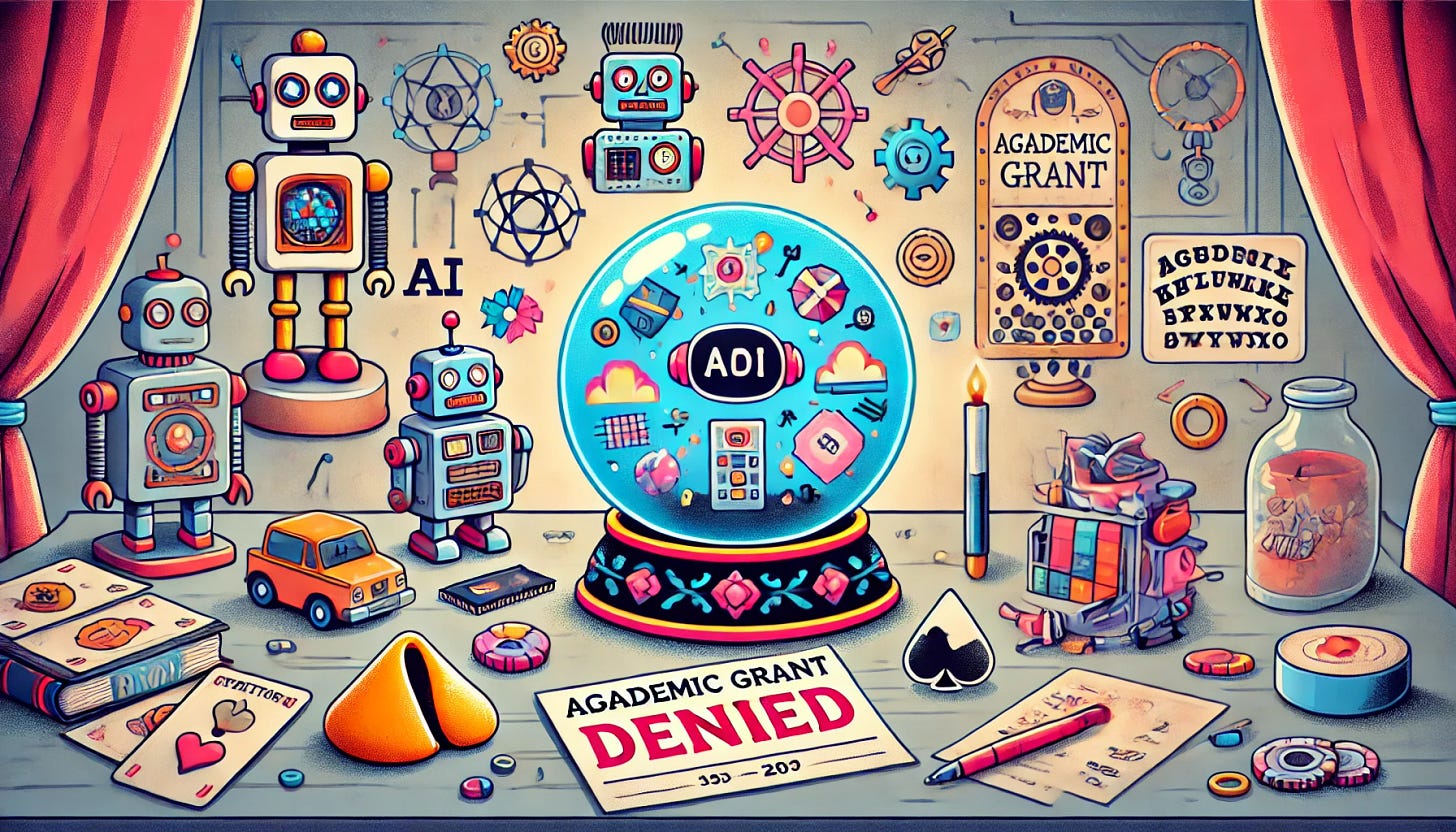I know the answer is ‘Yes’ for a great many people. There is an existing market. People make their living as astrologers. Companies produce and ship fortune cookies and Ouija boards every day. The only problem with the existing products is every single one is a total sham.
So, I somewhat understand that I have found a chilly reception when requesting academic funding to enter this market myself. For years, I have been writing grant proposals to record and predict descriptions of human selves. To date, these projects have been awarded exactly zero dollars. (Don't cry too much for me; I have successfully applied for funding to do other things.)
Nevertheless, I persist. In my latest proposal, I argue that predicting future selves is the perfect application for today's artificial intelligence. Below is an excerpt. If you're curious, you can read the whole thing.
I intend to create an identity forecasting system. I will make use of longitudinal datasets I have built in which the same individuals author (and later revise) descriptions of themselves. The task I will put to the new AI system will be this: given an older self-descriptive text, predict the revised, more recent text. Which individuals began to describe themselves as "father," and which did not? Which chose "dad" instead of "father?" I believe this is a challenging task. Some may believe it to be impossible: could any system really predict the course of one individual life?
My particular advantage in this endeavor is that I have ideal data to train AI to the task and evaluate its performance. For millions of individuals around the world and across more than a decade, I have observations of self-authored self-descriptions. With these as ground truth, I can systematically build and gauge the success of an identity forecasting system. As I will describe later in the proposal, generative large language models can and should be adapted to this task.


